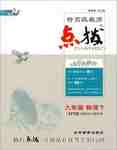题目内容
(get back, name after, fall asleep, think of, take off, write down, throw about, get ready, knock at, play jokes on, crowd round, fly over, get into, jump off)
1.I saw you ________ his address on a piece of paper.
2.He ________ his bike to help the old woman.
3.-Where are you going?-I'm going to Uncle Wang's family ________ my TV set ________.
4.It's not good manners ________ your thing ________ your room.
5.We often see the planes ________ our houses.
6.He is very popular. He likes to ________ people around him.
7.Buildings are often ________ their designers.
8.The students ________ to meet the mid-term exam.
9.We mustn't ________ only ________ ourselves.
10.Be sure not to ________ trouble.
11.I was just about ________ when the baby began to cry.
12.He ________ his hat and waved to me.
13.Please ________ the door before entering the room.
14.At the corner near the school he saw some people. ________ a woman.
解析:
|
write down;jumped off;to get…back;to throw…about;flying over;play jokes on;named after;are getting ready;think…of;get into;to fall asleep;took off;knock at;crowding round |

 特高级教师点拨系列答案
特高级教师点拨系列答案Someone says, “Time is money.” But I think time is 31 important than money. Why? Because when money is spent, we can get back. However(然而), when time is 32 , it’ll never 33 . That is 34 we mustn’t waste(浪费)time.
So we say that 35 is usually short. Even a second(秒)is very important. We should make full use of our time to do something 36 .
But it is a pity that there are a lot of people who do not know the importance of time. They spend their time smoking, drinking and 37 . They do not know that wasting time means wasting part of their own 38 .
In a word, we should save time. We shouldn’t 39 today’s work for tomorrow. Remember we have no time to 40 .
| 【小题1】 |
|
| 【小题2】 |
|
| 【小题3】 |
|
| 【小题4】 |
|
| 【小题5】 |
|
| 【小题6】 |
|
| 【小题7】 |
|
| 【小题8】 |
|
| 【小题9】 |
|
| 【小题10】 |
|